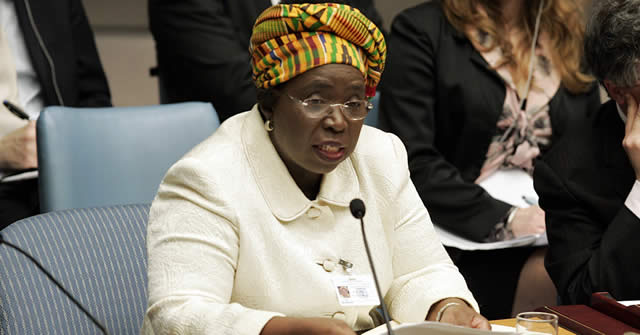Zwelithini likens immigrants to lice, ants

Herald Reporter—
ZULU King Goodwill Zwelithini likened foreigners living in South Africa to ants and lice in a recent public speech which was a throwback to the inflammatory utterances that fanned the Rwandan genocide in 1994 where over one million Tutsis and moderate Hutus were killed over an eight-month period.
During the approximate 100-day period from April 7, 1994, to mid-July, an estimated 500 000–1 000 000 Rwandese were killed.
The Hutu established a propaganda radio station RTLM and a newspaper called Kangura that urged the extermination of the Tutsi’s whom they labelled cockroaches urging Hutus to “cut down the tall trees”.
Tutsis are generally lanky and taller than Hutus.
Analysts said the effect of Zwelithini’s statement was to dehumanise foreigners in the eyes of the killers so that they would not have any qualms in quashing vermin.
King Zwelithini said he was not afraid to tell foreigners to leave because he was not an elected politician.
“The time is now for us to have a say,” he said. “I would like to ask the South African government to help us. We must deal with our own lice. In our heads, let’s take out the ants and leave them in the sun. We are asking that immigrants must take their bags and go where they come from.”
King Zwelithini’s speech was followed by xenophobic attacks that have claimed five people, including one Zimbabwean in Durban as the situation remains tense for foreigners living in South Africa amid reports over 2000 have been displaced.
Analysts have warned that King Zwelithini’s remarks could lead to genocide as the attacks were no longer xenophobic, but simply targeted at fellow Africans, which made the Afrophobia.
King Zwelithini blamed the ills facing South Africa on foreigners.
“It is painful to me when I look at the country that our forefathers and thousands of people fought for become a criminal den,” he said
“There is nothing more painful to me; I don’t sleep thinking about these things. That what kind of people that God has placed me amongst us who do not listen?
“In 2015, we are talking about South Africans as people who don’t want to listen, who don’t want to work, who are thieves, who rape children, housebreakers, lazy people who don’t want to work the land. They are people when, if other nations look at them, will say let’s go and eat the inheritance of the stupid people.
“As I’m talking to you now, there are all sorts of things hanging outside the stores, they brought untidiness to our streets, its filthy, you can’t even see what these stores were (with) foreigners in these areas,” he said in statements that went viral and triggered attacks on foreigners in Durban, the capital of Kwazulu Natal Province.
Zulu King Goodwill Zwelithini can be dragged before international tribunals over his utterances which invariably incited South Africans to unleash terror on foreign nationals in that country, Prosecutor-General Mr Johannes Tomana has said.
Mr Tomana said the victims of xenophobia, which has claimed five lives, including one Zimbabwean in recent days and left thousands displaced, could also sue the South African government for damages.
He was speaking in an interview after giving a lecture at the National Defence College on the need to balance the protection of human rights and national security.
“South Africa is guilty of breaching international law and unless they do something to address that violation they will stand condemned in front of all right thinking international citizens,” said Mr Tomana.
Mr Tomana said foreigners living in South Africa also enjoyed the protection of their rights in terms of the South African Constitution.
“Those rights that are protected are actually being violated,” he said. “It actually creates the basis for you to claim damages.”
Mr Tomana said the obtaining situation across the Limpopo placed an obligation on the South African government to take appropriate measures to stop xenophobic attacks.
“The South African government must account for the culprits and redress the injury that has been afflicted on those that have been victims of the barbaric behaviour,” he said.
Mr Tomana also urged governments from where the victims come from “to insist that justice must be done”.
The Zulu King now faces a charge of hate speech and violating human rights from Western Cape organiser of the SA National Defence Union.
Mr Tim Flack, famously booted out of a Parliament committee meeting in 2013 for wearing shorts, said he was spurred into action after watching complaints on Twitter that not enough was being done to stop xenophobic violence in South Africa by the country’s Home Affairs Minister Malusi Gigaba.
He decided to go ahead and lay the charge online on the SA Human Rights Commission’s website, for allegedly inciting violence, and sedition.
He said the commission acknowledged his complaint, telling him it had been referred to its KwaZulu-Natal office.
The rights Flack alleges were violated by the king include the rights to dignity, security, life, movement and residence, contained in the Bill of Rights.
This followed reports of a speech he made in Pongola, KwaZulu- Natal, towards the end of March in which the king complained about crime and dirty streets.
SAHRC spokesperson Isaac Mangena could not immediately confirm Flack’s complaint, but said he had just returned from an SAHRC trip to KwaZulu-Natal, which included a visit to the king’s office for a similar complaint received a few weeks ago.
He would not say who had laid that complaint, nor the outcome of the meeting at the king’s office.
City Press reported that king said his words had been lost in translation and that he had been misquoted.
Mangena said SAHRC team had visited camps housing displaced people and lamented the poor conditions there, which included two children being taken to hospital by ambulance to be treated for diarrhoea.












Comments